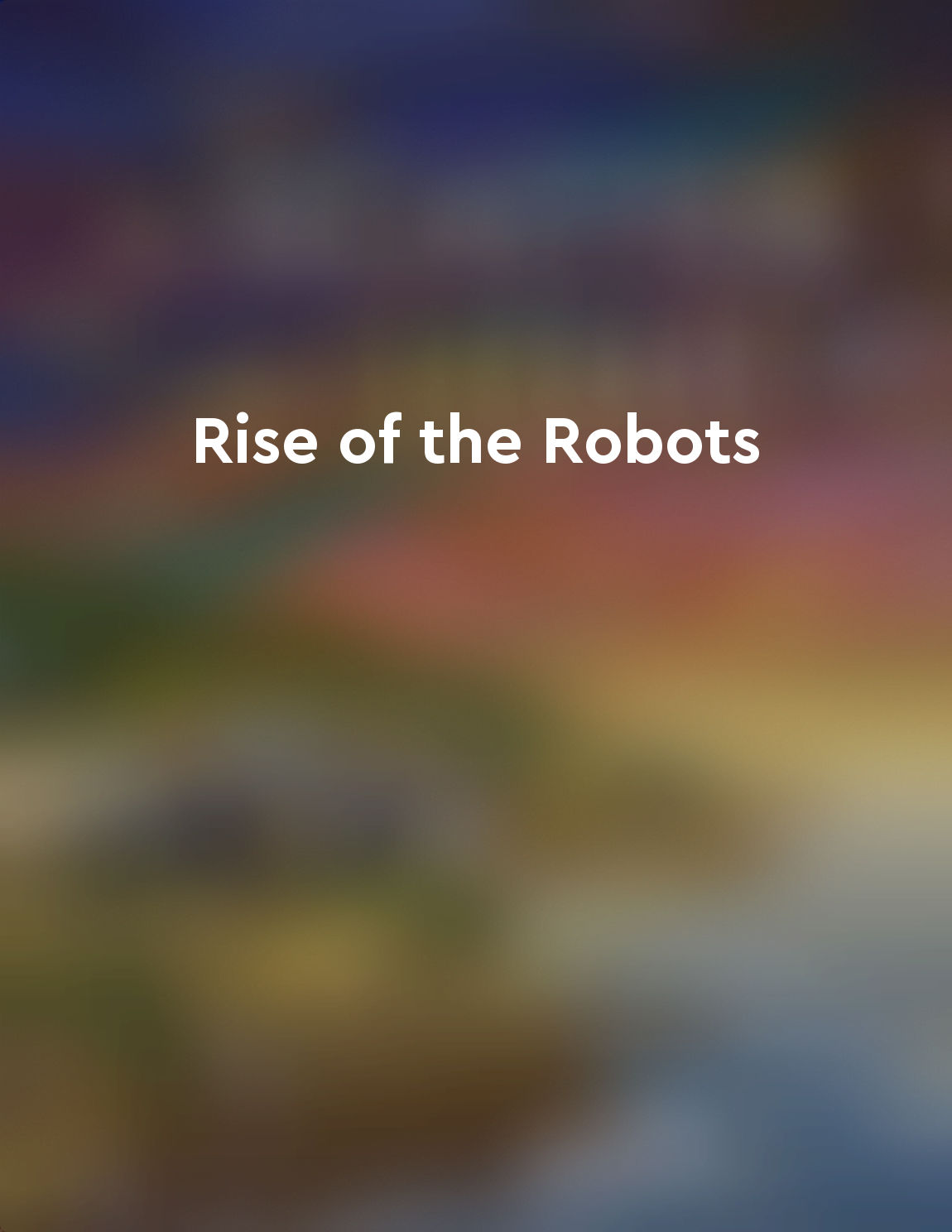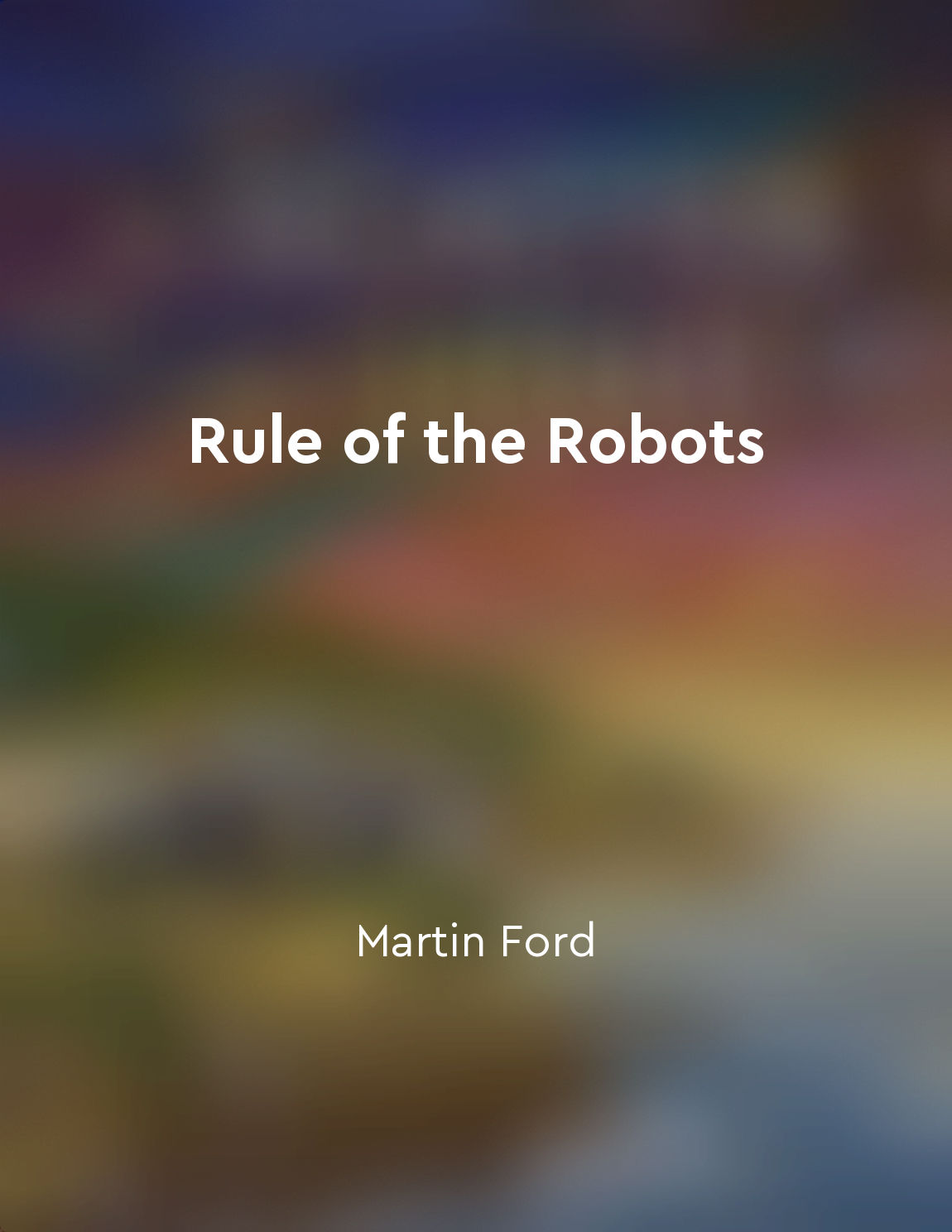The future of work will be shaped by the integration of robots and AI from "summary" of Rule of the Robots by Martin Ford
The rapid advances in robotics and artificial intelligence are fundamentally transforming the labor market. As technology continues to progress, more and more tasks that were once performed by humans are being automated. This shift is not just limited to routine manual labor but also includes cognitive tasks that were previously thought to be the sole domain of human intelligence. The integration of robots and AI into the workforce is revolutionizing industries across the board. Machines are increasingly capable of performing complex tasks with greater speed and accuracy than humans. This has led to significant improvements in productivity and efficiency, but it has also raised concerns about the future of work. As robots and AI become more sophisticated, they are poised to take over a larger share of jobs in various sectors. While some argue that this will lead to widespread job loss, others believe that new opportunities will be created as a result of technological advancements. However, it is clear that the nature of work is changing, and individuals will need to adapt to remain competitive in the labor market. The rise of robots and AI also has implications for income inequality. The benefits of automation are not distributed evenly, with some workers reaping the rewards while others are left behind. This trend could exacerbate existing disparities and widen the gap between the haves and the have-nots. In order to navigate this rapidly changing landscape, policymakers, businesses, and individuals must be proactive in addressing the challenges posed by automation. This will require investments in education and training to equip workers with the skills needed to succeed in an increasingly automated world. Additionally, it will be crucial to establish policies that ensure the benefits of automation are shared equitably across society.- The integration of robots and AI into the workforce is reshaping the future of work in profound ways. While the full extent of these changes remains to be seen, it is clear that we are entering a new era where human workers will need to coexist with machines in order to thrive.
Similar Posts

The rise of robots is reshaping the nature of work
The inexorable march of technology has brought us to a point where machines are now capable of performing tasks that were once ...
Innovation is essential for economic growth in the digital age
Innovation today is more critical than ever for driving economic growth. The digital age has ushered in a new era where technol...

Programming is a form of literacy that unlocks endless possibilities
Programming is a form of literacy, like reading and writing, that allows us to communicate with machines. It enables us to give...
Automated trading causing flash crashes
Automated trading algorithms have transformed the financial markets into a high-speed battlefield where milliseconds can make t...

Automation is reshaping industries
The transformative power of automation is evident across a wide range of industries, from manufacturing to finance to healthcar...
The AI industry is highly competitive with major players vying for the top spot
The AI industry is a battleground where major players are constantly jockeying for dominance. It is a cutthroat world where com...
The implications of sentient machines go beyond technology
The realm of sentient machines is not confined to the realm of technology. The implications of these intelligent machines exten...
The influence of AI on politics and governance is growing
The impact of artificial intelligence on the political landscape and governance is becoming more pronounced as AI technologies ...
The future of work is uncertain
The future of work is a topic that has captured the attention of many scholars and experts in recent years. With the rise of au...
AI has the potential to transform transportation systems
The potential for artificial intelligence to revolutionize transportation systems is vast and profound. Self-driving cars are p...


